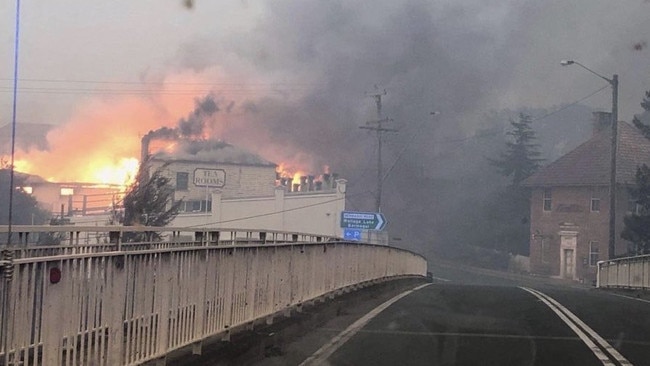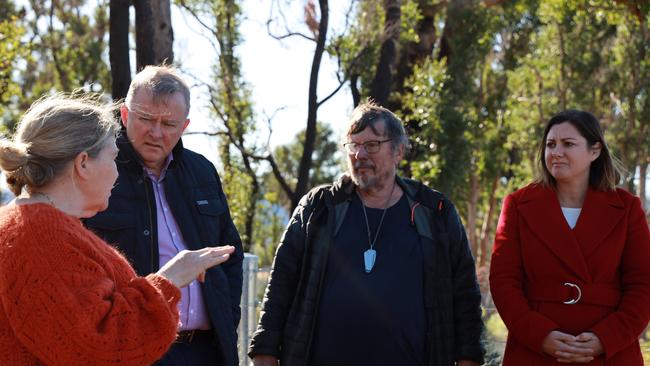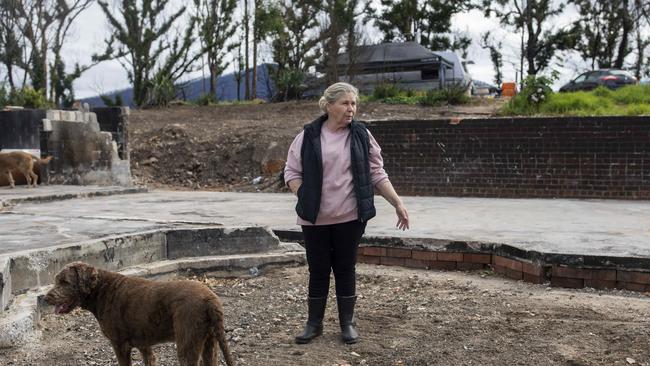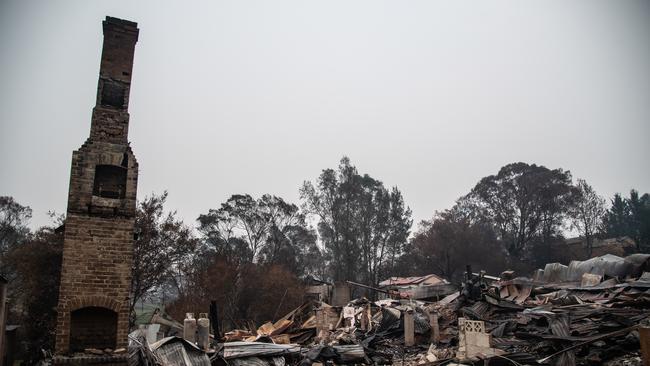South coast bushfires: Residents say “planning crisis” is stopping them rebuild
With a staggering $176 million worth of development applications lodged this year in the Bega Valley alone, residents say a backlog is delaying families rebuilding their lives after the devastating summer bushfires.

The South Coast News
Don't miss out on the headlines from The South Coast News. Followed categories will be added to My News.
- Stepfather left fighting for his life after knife stabbing
- 'Worst day of my life': Mum of man stabbed to death shares pain
- Woman crashed into popular Bermagui restaurant after drinking vodka
As residents look to rebuild their lives after the summer bushfire devastation, an huge influx of development applications, red tape and a shortage of tradespeople are slowing the process and frustrating south coast residents.
In the first nine months of 2020, there have been 447 DAs - including 142 new dwellings - lodged in Bega Valley Shire Council alone with a combined total of almost $176 million.
Wandella residents Graeme and Robyn Freedman have called a caravan home after losing their home on New Year’s Eve, and received a construction certificate to build a small dwelling this month to live in until they undertake the mammoth process of rebuilding their home.
Mr Freedman said he was disappointed it took two months to have his development application approved, adding a shortage in tradespeople in the region will mean many residents won’t begin to rebuild until next year.
“Unfortunately the process is long, tedious and very emotional,” he said.
“We will worry about rebuilding our house later, it’s too big a job to do all at once.”
The summer bushfires destroyed almost 500 homes in the Bega Valley alone.

Mr Freedman said authorities should have dropped some requirements for applications in bushfire-impacted areas, including the construction of structures including granny flats.
He said the bushfires exacerbated what was already a “planning crisis” across the state.
“I’m sick and tired of being told what to do,” he said.
“Everyone’s been through the bushfires and we can’t even build granny flats.”
Bega Mayor Russell Fitzpatrick said the council has passed a resolution to make it easier for residents to build dual occupancy structures - no longer requiring the structures to be connected to each other, and the decision now sits with NSW Planning.

A NSW Department of Planning, Industry and Environment spokesperson said secondary dwellings, such as granny flats, are currently only allowed on residential-zoned land.
“Bega Shire Council has resolved to amend their Local Environmental Plan and are in active discussions with the department about finalising this proposal. Public consultation must occur before the change is made,” the spokesperson said.
Bega Valley Shire Council councillor Fitzpatrick said development applications were “through the roof” - triple the normal amount for September.
He said one quarter of applications lodged in September were for fire-impacted properties, with renovations so people can work from home due to COVID-19 also adding to the increasing DAs.
He said while bushfire-impacted residents were being fast-tracked, the council has requested more resources to combat the increasing number and a growing “backlog”.
“We are trying to see how many qualified people we can get from other areas in NSW,” he said.

The average time for approvals has blown out from two weeks to three weeks, and 25 illegally built homes destroyed by the bushfires are also going through the process of approval, he said.
The Freedman’s are currently without running water and forced to spend $250 shipping water in each fortnight.
“Every time it rains we can’t catch any water,” Mr Freedman said.
He said the number of approved development applications is not a true reflection of how many residents have actually started to rebuild their lives.
“It doesn’t show the true picture because I’ve been told people are looking to start rebuilding in April because of the shortage of builders,” he said.
“To be honest, I think councils in general are not on top of it, and are just doing what they have always done.
“They have not made it easier for people to get out of living in tents and caravans.
“The real solution is about making it easier for people to get something cheap and of quality built that can then be re-used.
“It has been a lot easier to rebuild in towns where underground infrastructure is provided.”
